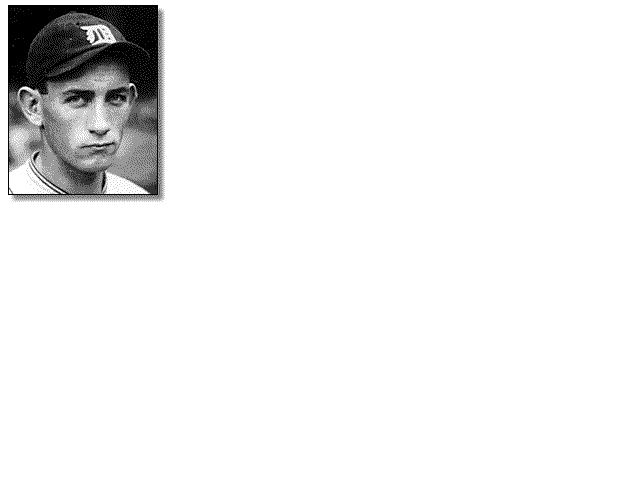|
|
|

Describing Charlie Gehringer, Mickey Cochrane said of his teammate, "He says hello on opening day and goodbye on closing day, and in between he hits .350." Gehringer was so quiet that when he was given a "Day," the lefthander was given a set of righthanded golf clubs and learned to play the game righthanded. He celebrated the Day by homering on the first pitch thrown to him, getting three other hits, and stealing home to win the game. "The Mechanical Man" had 200 or more hits seven times, bettered .300 fourteen times, and knocked in 100 or more runs seven times. In the field, he led the AL in fielding six times, putouts three times, and assists a record seven times. A measure of Gehringer's all-around excellence is the 1929 season, when he led the league in stolen bases, doubles, triples, hits, runs, games, putouts, and fielding while hitting .339. As for consistency, he hit .320 lifetime and .320 in twenty World Series games.
Like Bob Feller, Gehringer played his first baseball on a field carved out of a family farm. A third baseman at the University of Michigan, Gehringer was discovered by Tiger great Bobby Veach and, despite his quiet nature, became a favorite of manager Ty Cobb. Cobb resisted all efforts to change Gehringer's swing and said that, aside from Eddie Collins, Gehringer was "the best second baseman I ever saw."
After brief callups in 1924 and 1925, Gehringer became the Tigers' regular second baseman in 1926. In 1933 he started a string of six straight starts for the AL in the All-Star Game. He is the midsummer classic's lifetime batting leader with an even .500 average (10 for 20). This splendid ballplaying machine was equally sparkling in World Series play, hitting .379, leading all Tiger hitters in a losing effort in 1934. In 1935, however, Detroit's "G-Men" Hank Greenberg, Gehringer, and Goose Goslin became champions, beating the Cubs as Gehringer hit .375 and handled 39 chances flawlessly. In 1937 Gehringer reached the high-water mark of his career, hitting .371 and being named MVP. After three more .300-plus seasons, he played out the string during World War II. He served as the Tigers' general manager from 1951 to 1953 and a vice president until 1959.